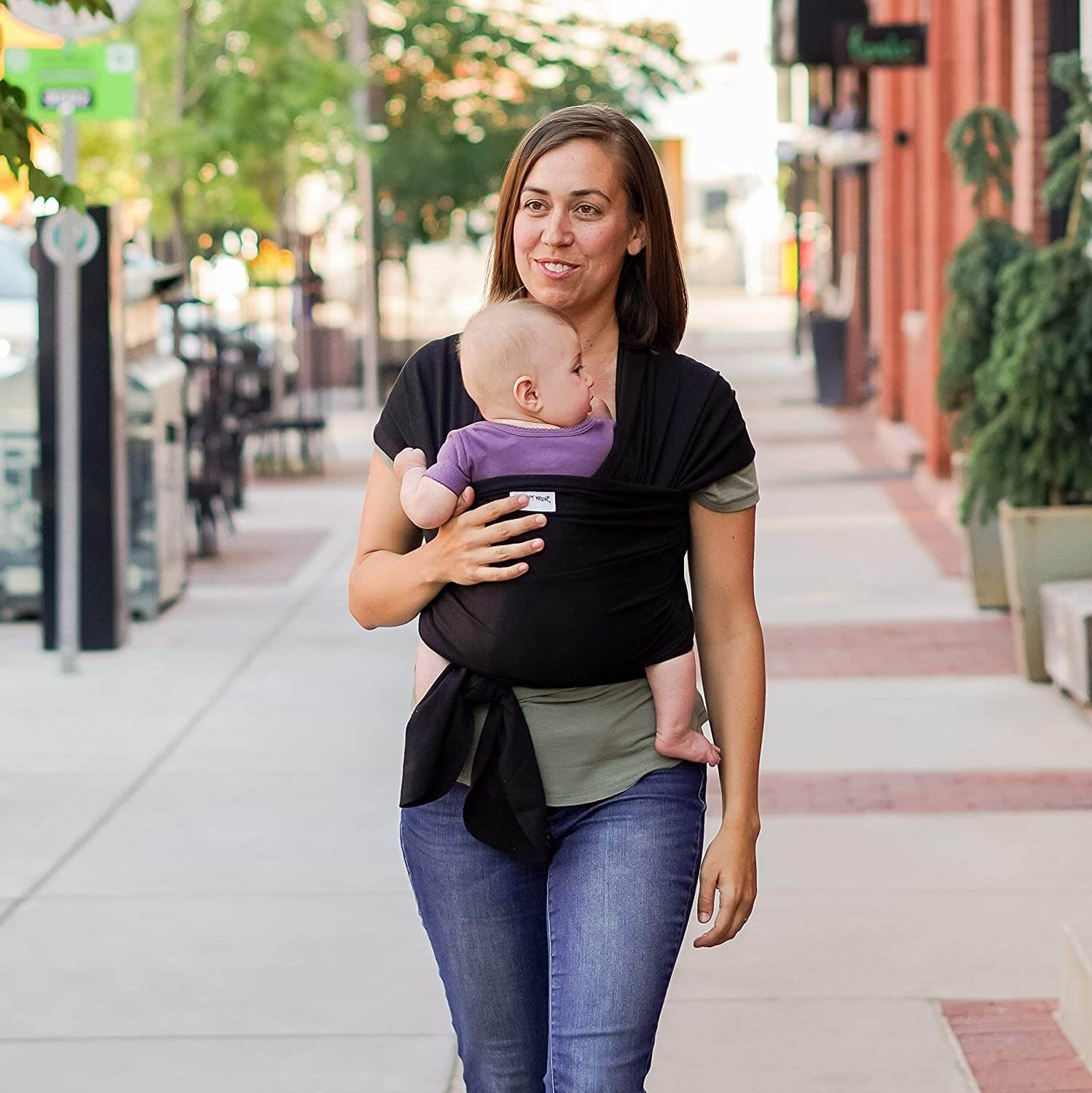My Baby Only Wants to Breastfeed: What Should I Do?
In this article, you'll find all the information you need to understand why your baby only wants to breastfeed. Keep reading!

Often, we can find mothers who’ve just given birth who comment that their baby only wants to breastfeed. But what’s normal? When should we be concerned?
Relax, during the first few months of a baby’s life, especially in the first few weeks, this is to be expected.
Sometimes, you may have a false belief that your baby seeks the breast because they’re not feeding enough and aren’t satisfied. This, coupled with unsolicited advice that reaches your ears, can make you doubt your body’s ability to produce the milk your baby needs.
Why does my baby only want to breastfeed?
A newborn’s stomach is very small. This, added to the ease of digesting breast milk, makes your baby want to breastfeed all the time.
In addition, the mother’s breast isn’t only food, it’s shelter, security, support, and warmth–it’s mom. And this is the only thing that little ones know, so it’s where they want to spend the most time.
It’s also important to know the growth peaks that babies go through, which are the famous breastfeeding crises. In these, infants spend practically the whole day at the breast in order for the mother to produce more milk.
It’s something totally normal and is part of their development. However, not knowing about these growth spurts can lead us to believe that our child isn’t getting enough to eat.
Below, we’ll analyze other issues that may explain why your child only wants to breastfeed.
Your child refuses formula milk

It’s common for breastfed babies to reject formula. In addition to tasting different, what they usually reject is the use of a bottle, as the sucking mechanism is totally different from suckling at the breast.
However, sometimes the mother has to be away from her baby or needs to bottle feed for some other reason. Many children take advantage of the hours when their mothers are absent to sleep and when they return home, they want to breastfeed to make up for lost time.
Your baby experiences relaxation when breastfeeding
As we said before, the mother’s breast is much more than food.
Many breastfed babies have the habit of falling asleep at the breast, as the act of sucking and being with mom relaxes them.
When a baby’s asleep at the breast, non-nutritive sucking appears. This is important for the child’s development, hence the importance of allowing the baby to let go of the breast and not taking it away from them, even if the baby’s asleep.
We can often hear the typical phrase “your baby’s using you like a pacifier”, although it’s really the pacifier that was invented to imitate the function of the breast.
In addition, breast milk contains hormones and amino acids, such as melatonin and tryptophan, which make the baby fall asleep.
Your baby wants to be with mom
After nine months in the mother’s womb, it’s entirely to be expected that during the first moments after birth, baby’s only want to be with their mom. And, for little ones, the breast represents mom.
Sometimes, the baby’s father or other family members may feel rejected by the baby and think that they won’t be able to bond with the little one. However, it’s important to understand, from all this information, what it means for a newborn baby to be away from their mother.
Gradually, as the baby grows, they’ll also have eyes for others and will want to relate to more people besides their mother. But it’s important to know that during the first months, the only thing a child needs is its mother.
What can I do if my baby only wants to breastfeed?

If you’re returning to work, your baby is less than six months old, and doesn’t want to have anything to do with bottles, you can try offering milk in a shot glass. Little ones are capable of drinking from the first day of life.
However, if they’ve already started complementary feeding, caretakers can offer them other foods during the time when mom’s away from home.
If what bothers you is the mere fact that your baby’s very demanding, you just have to be patient. As we’ve seen, there are stages in which little ones tend to be more demanding and it’s very important to know them, understand them, accompany them, and respect them.
Little by little, you’ll see how they’ll be able to space out breastfeeding on their own. It’s just a matter of time.

